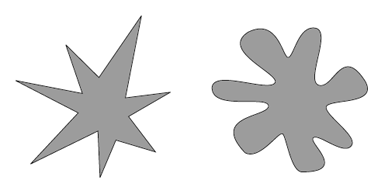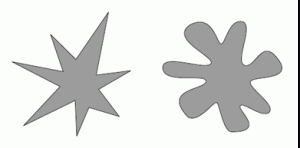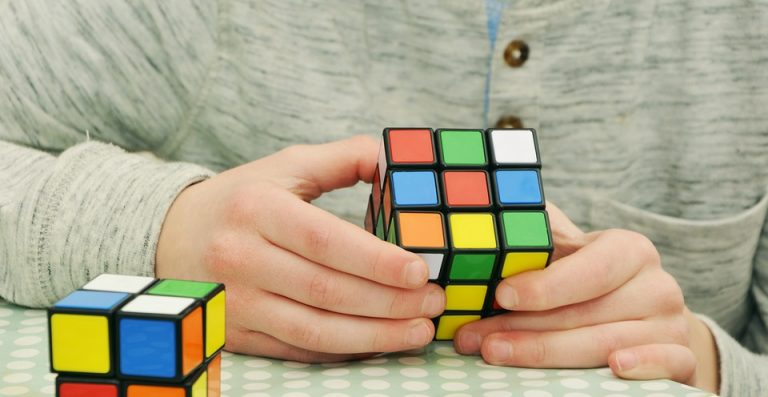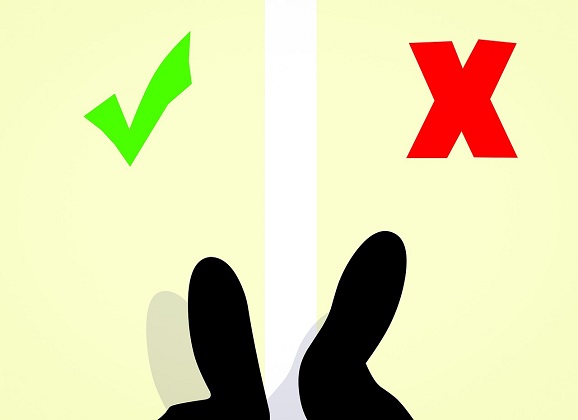The Hidden Power of Words
Words ought to be a little wild for they are the assaults of thought on the unthinking. — John Maynard Keynes
I’m certain I can read your mind.
Look at the picture below and assign one of them the name “Bouba” and the other “Kiki.”
Now, let me put my fingers to my temple, tap into the electronic current connecting us across time and space, and predict that you named the one on the left “Kiki” and the one of the right “Bouba.”
Freaky impressive, right?
If you thought about it, though, you probably recognized that the names “felt right” by simply considering the shape of the object. But the interesting question is why?
Before I answer that, let’s examine those names I gave you. The word “Kiki” uses short vowels–vowels formed at the front of the mouth. “Bouba,” on the other hand, uses long vowels–vowels pronounced at the back. Notice, then, the psychological “distance” created when simply pronouncing the word.
Now, this is where things get weird.
Researchers have taken a bizarre looking dog toy and placed it 30 feet in front of participants and asked them to estimate how far away it was. When the researchers named the toy “deeb” (a short-voweled word) people estimated, on average, that it was 23 feet away. When they named it “dohb” (a long-voweled word) people estimated it was 26 feet away.
Okay, that’s interesting, but not THAT interesting.
Well how about when researchers did a similar task, this time asking participants to throw a ball at a target (either named “deeb” or “dohb”) twenty feet away.
Here, when the target was named deeb, participants under-threw the ball, on average, by four feet. When it was named dohb, they over-threw it by five feet.
But it gets crazier.
When people were asked to evaluate how emotionally close they felt to a stranger described by a researcher, participants responded that they felt closer when the stranger was named Jean compared to Joan.
The theory to explain all of this, then, originates in the psycholinguistic “distance” from pronouncing those vowels. In reference to the original example, when you look at something close up, the edges become sharper, more angular. When you look at something farther away, things begin to round out, to blur.
Therefore, it feels natural to call the sharper image “Kiki” (the short vowels) while we call the other “Bouba” (the long vowels).
This notion of psychological “distance” then applies to all instantiations of the word, emphasizing, then, the importance of how we verbalize our world–not only the definitions and meanings behind our words, but also, more basically, the sounds they produce.
So if you want to practice your newfound consideration of the implication of words, go ahead and do so in the comment section below.
Deeply,
jdt
Research Credit:
Spector, F., & Maurer, D. (2013). Early sound symbolism for vowel sounds. I-Perception, 4(4), doi:10.1068/i0535
Maglio, S. J., Rabaglia, C. D., Krehm, M., Feder, M. A., & Trope, Y. (under review) On the bi-directional relationship between psychological distance and vowel sound.









Very interesting! I wonder how it applies to other languages (thinking of the one other language I know, lejos has longer vowels than circa).
Also, I think part of it is almost like electromagnetic waves/sound waves. Kiki is short and sticcato, suggesting quick intervals for the prounciation and high pitch, whereas Bouba is low pitch and longer syllables. This is like waves; Kiki being like high energy X-rays and Bouba like low-energy Gamma rays. THus, we (or I at least) associate Kiki with high energy and things that are sticcato (like a sharply-defined object) and Bouba with more low energy, deep things (like a larger, less defined shape). Make sense? Idk but I think my first thought was Kiki would go with the more energetic thing, which in this case, I took as the object with the sharp edges and reletively small looking mass.
That’s really impressive you mentioned the other languages idea, because another study (one I didn’t present) discussed how they went through about 30 different languages, looking at the words for “far” and “near” and found this pattern of long voweled words for “far” and short voweled ones for “near.”
And I like this idea of comparing it to high and low energy waves; I think you’re onto something there–especially this idea that Kiki imparts this “staccato-like” sense. Very keen!
Upon inspecting the two images, the obvious difference is the sharp edges of the image on the left and the rounded edges on the right. To me the rounded edges had a feminine vibe and the sharp edges a masculine feel. Therefore I gave the name kiki to the image on the right since it is generally a female name.
What does this mean, Mr. Psychologist?! Am I a serial killer?!
I sure hope it doesn’t mean you’re a serial killer, but then again, the fact that you’re reading this blog already demonstrates a questionable sense of judgment 😛
Your observation is a very interesting one, though–one I (nor I believe the initial researchers) had considered. The shapes of the items being more masculine/feminine…I like this. I’m going to have to think on that insight. There has to be another research project in there somewhere…
I chose correctly, but my rational had a somewhat different bent to it (although there is some correlation as you described):
The symbol that represented “KIKI”, appears to have “sharp edges” and sharp points, which lends it self to a “hard” sounding word such as “KIKI”, also the individual letters used are “clean” straight line letters going from “point to point”. The symbol known as “BOUBA”, had rounded points and edges similar in like to the sound of the word “BOUBA”, the individual letters are complete opposite of the “KIKI” letters, the “BOUBA” letters are generally rounded closed ended that roll off of the tongue.
An observation from a lay
A very astute observation! You must be a social psychologist yourself 🙂 Or at least you have a calling toward being one. In most studies where they test this effect, though, the words have been read to the participants rather than seen on paper. Still, you could argue that even hearing the word prompts you to imagine its script.
However, we still get the same effect with words such as “deeb” and “dohb” which both have rounded letters. Nonetheless, the point you made is a very insightful one
Interesting idea but you read my mind wrong. You put “Bouba” first and then “kiki” so I assigned them names left to right. Then again I did this really fast without even looking at the shape so I probably didn’t even fit the criteria for the experiment.
I reversed them so you wouldn’t think that order was the trick haha But yes, in experiments, we typically have “checks” to make sure participants are paying attention 🙂 You would have failed clearly
Wow! One of your most interesting articles yet! You correctly read my mind on the Bouba/Kiki debate. Perhaps there is a Malcolm Gladwell style non-fiction in your future. But, I get the vague feeling you would be disappointed if you write award winning NON-fiction haha. What does it mean that i chose Bouba and not Kiki for my post name?
I’m glad you enjoyed it. When I first heard about this phenomenon, it stunned me. Very Malcolm Gladwell-esque. Though you’re right, there won’t be any nonfiction books from me in the near future haha
As for choosing Bouba as your name…I’d say that means you tend to look at things from a distanced perspective, relying on your logic rather than emotion to evaluate a situation. And while this may contribute to rather rationale decision-making, don’t be afraid to get invested in a project your heart would otherwise be enthralled to undertake.